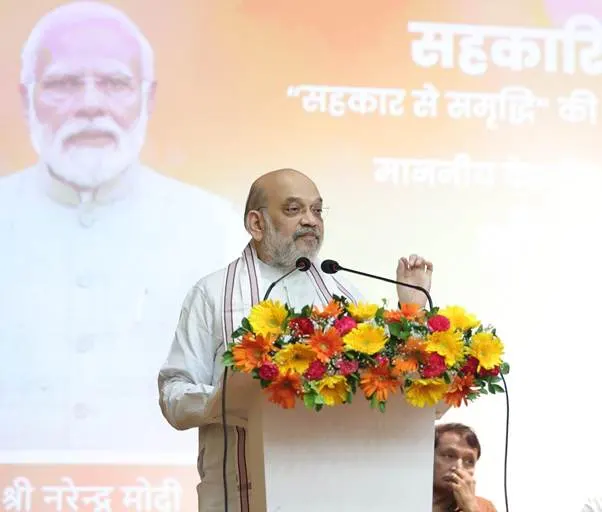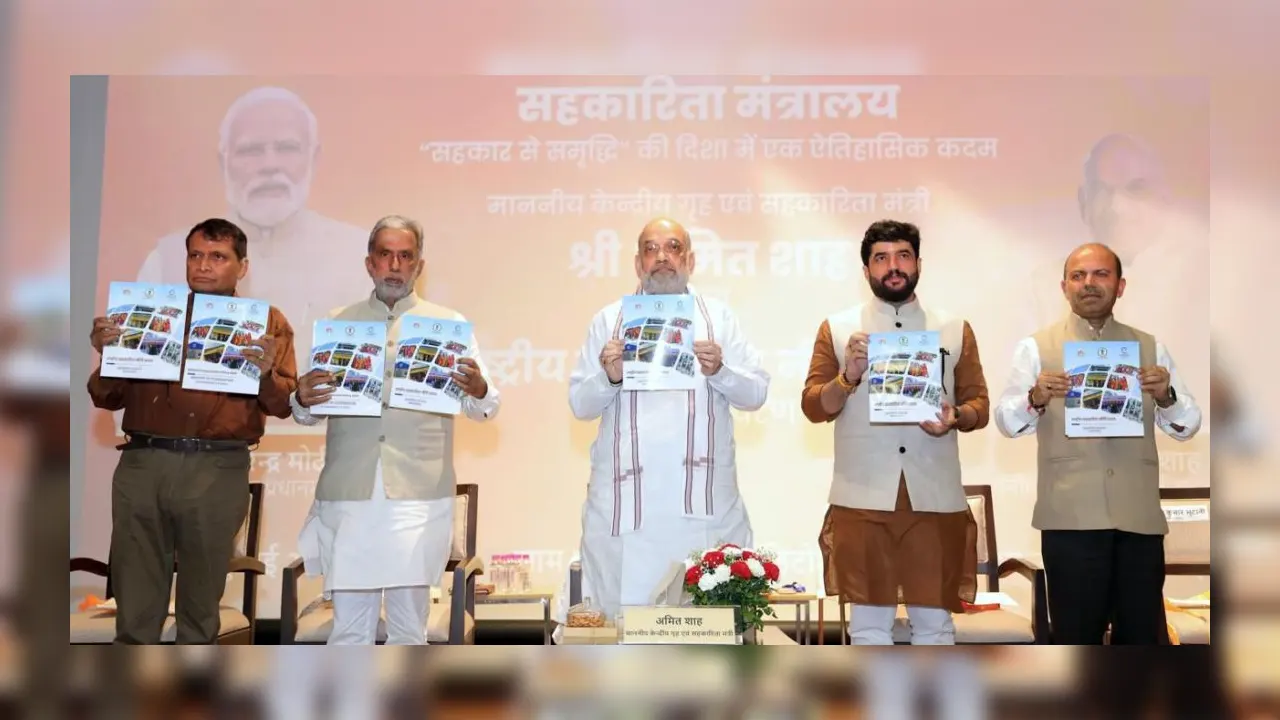Sahkar Taxi: A Bold Step Under India’s National Cooperation Policy 2025
Sahkar Taxi is India’s upcoming cooperative-based taxi service, designed to put control and profit directly in the hands of those who drive. Announced under the National Cooperation Policy – 2025, Sahkar Taxi reflects a bold shift in how transportation services are owned and operated in India. This initiative is backed by the Ministry of Cooperation, led by Shri Amit Shah, and aligns with Prime Minister Narendra Modi’s vision of ‘Sahkar Se Samriddhi’ prosperity through cooperation.
What Makes Sahkar Taxi Different?
Unlike private ride-hailing apps that operate on corporate profits, Sahkar Taxi works on a member-first cooperative model. Here, the drivers are not employees or gig workers they are equal stakeholders. Every driver involved in Sahkar Taxi will be part of the cooperative society that owns the service.
The most powerful part of the model:
100% of the profit from each ride will go directly to the driver.
This ensures that those who put in the work reap the full reward. It also fosters long-term income stability, dignity of work, and true ownership at the grassroots level.

Why Sahkar Taxi Matters
For years, ride-hailing services in India have faced criticism for high commission cuts, poor driver support, and lack of transparency. Sahkar Taxi addresses all of these issues by turning the current system upside down from corporate-led to community-led.
- Drivers get full earnings, no middleman.
- Passengers receive service from local owners who care.
- The system stays rooted in rural and urban India’s real needs.
This model is not just about transport. It’s a solution to unemployment, exploitation, and economic exclusion. It brings real change where it’s needed most on the ground.
Policy and Government Support
Sahkar Taxi is part of the larger cooperative development plan under the National Cooperation Policy – 2025. This policy is India’s roadmap to expand cooperative participation in sectors like:
- Tourism
- Transport (including taxis)
- Insurance
- Green energy
- Agriculture
- Local retail and public welfare services
During the official policy launch in July 2025, Shri Amit Shah confirmed that the Sahkar Taxi initiative will begin operations by the end of this year. He emphasized that this model ensures transparency, accountability, and direct benefits to the people involved, especially drivers in rural and semi-urban areas.
How Sahkar Taxi Will Operate
Sahkar Taxi will be launched as part of existing cooperative frameworks, such as Primary Agricultural Credit Societies (PACS) or newly formed urban transport cooperatives. These units will manage everything from vehicle ownership, route management, fare regulation, and customer service all through a transparent, technology-enabled platform.
Here’s how the system is expected to work:
- Local Cooperative Units will be formed, where each driver is a member-owner.
- Bookings will be managed via a mobile app and phone-based services, ensuring digital access and inclusivity.
- Fares will be regulated for fairness, without surge pricing.
- Training and support will be provided to drivers through government-approved programs.
- Profits will go directly to the drivers, with a small portion reserved for vehicle maintenance and local cooperative management.
Sahkar Taxi also plans to adopt eco-friendly options, such as electric vehicles, in the long term.
Impact on Drivers and Local Communities
This initiative has the power to transform the lives of thousands of drivers across India:
- More earnings without corporate commission cuts
- Better job satisfaction through ownership and control
- Freedom from price wars and algorithm-driven punishments
- Local job creation, especially for rural youth, women, and marginal communities
- Increased trust among passengers, who know their fare supports local workers
In the long run, Sahkar Taxi will help build a transport ecosystem where growth is shared, and where every ride supports a family, not a corporation.
National Vision Behind Sahkar Taxi
This is not just a new taxi service. Sahkar Taxi represents a model for self-reliant India (Aatmanirbhar Bharat). It fits into the government’s long-term plan to:
- Triple the cooperative sector’s contribution to GDP by 2034
- Bring over 50 crore inactive or non-member citizens into active cooperative participation
- Establish one cooperative unit in every panchayat of India
- Foster inclusive growth through models that empower rural India, tribals, Dalits, women, and youth
The government has already laid the foundation for Tribhuvan Sahkari University, which will train cooperative members in skills like taxi operations, digital booking, customer service, and financial management. This ensures that Sahkar Taxi will not just start strong, but grow with quality.
What It Means for You as a Passenger
For riders, Sahkar Taxi offers more than just a ride. It brings:
- Trust and fairness in pricing
- Locally-run services with familiar drivers
- Reliable, GPS-enabled vehicles backed by community standards
- The comfort of knowing your fare goes to someone who truly needs it
Soon, when you book a Sahkar Taxi, you’ll know you’re not just getting somewhere you’re contributing to a better, more just transport economy.
Sahkar Taxi is more than a government project. It’s a people’s movement, created for fairness, dignity, and real ownership. Backed by national policy and built by the hands of the people, it aims to reshape how India moves without leaving its drivers behind.
This isn’t just another ride-hailing service. It’s a ride toward self-reliance, community empowerment, and true cooperative prosperity.
Stay tuned as Sahkar Taxi rolls out across India by the end of 2025. A better ride is coming and this time, the driver owns the keys.

